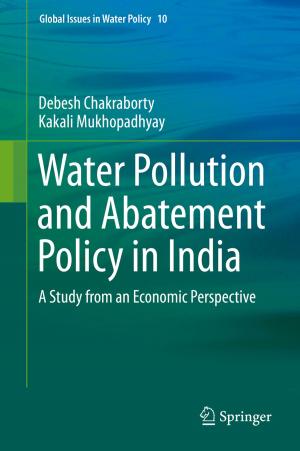The Black Earth
Ecological Principles for Sustainable Agriculture on Chernozem Soils
Nonfiction, Science & Nature, Science, Earth Sciences| Author: | Igori Arcadie Krupenikov, Boris P Boincean, David Dent | ISBN: | 9789400701595 |
| Publisher: | Springer Netherlands | Publication: | March 23, 2011 |
| Imprint: | Springer | Language: | English |
| Author: | Igori Arcadie Krupenikov, Boris P Boincean, David Dent |
| ISBN: | 9789400701595 |
| Publisher: | Springer Netherlands |
| Publication: | March 23, 2011 |
| Imprint: | Springer |
| Language: | English |
Soil is the Earth’s living skin. It provides anchorage for roots, holds water long enough for plants to make use of it and the nutrients that sustain life – otherwise the Earth would be as barren as Mars. It is home to myriad micro-organisms and armies of microscopic animals as well as the familiar earthworm that accomplish biochemical transformations from fixing atmospheric nitrogen to recycling wastes; it receives and process all fresh water, provides the foundations for our built environment; and comprises the biggest global carbon store that we know how to manage. This book is about the best soil in the world - the black earth or chernozem: how it is being degraded by farming and how it may be farmed sustainably. Industrialisation of farming has laid bare contradictions between the unforgiving laws of ecology and economics. Soil organic matter is the fuel that powers soil systems and the cement that holds the soil together – and in place – but agriculture is burning it up faster than it is being formed: even the chernozem cannot long survive this treatment. Here is the evidence for this trend and, based on long-term field experiments, ecological principles for sustainable agriculture that can reverse the trend and, at the same time, feed the world. Unlike other volumes in the series, this is not an edited collection of scientific papers. The authors have chosen the classical monograph to be near to the reader from beginning to end - to convey their anxiety about the state of the land and their optimism about the possibility of retrieving the situation by changing the social and political approach to the land so as to provide the necessary incentives for sustainable land use and management.
Soil is the Earth’s living skin. It provides anchorage for roots, holds water long enough for plants to make use of it and the nutrients that sustain life – otherwise the Earth would be as barren as Mars. It is home to myriad micro-organisms and armies of microscopic animals as well as the familiar earthworm that accomplish biochemical transformations from fixing atmospheric nitrogen to recycling wastes; it receives and process all fresh water, provides the foundations for our built environment; and comprises the biggest global carbon store that we know how to manage. This book is about the best soil in the world - the black earth or chernozem: how it is being degraded by farming and how it may be farmed sustainably. Industrialisation of farming has laid bare contradictions between the unforgiving laws of ecology and economics. Soil organic matter is the fuel that powers soil systems and the cement that holds the soil together – and in place – but agriculture is burning it up faster than it is being formed: even the chernozem cannot long survive this treatment. Here is the evidence for this trend and, based on long-term field experiments, ecological principles for sustainable agriculture that can reverse the trend and, at the same time, feed the world. Unlike other volumes in the series, this is not an edited collection of scientific papers. The authors have chosen the classical monograph to be near to the reader from beginning to end - to convey their anxiety about the state of the land and their optimism about the possibility of retrieving the situation by changing the social and political approach to the land so as to provide the necessary incentives for sustainable land use and management.















